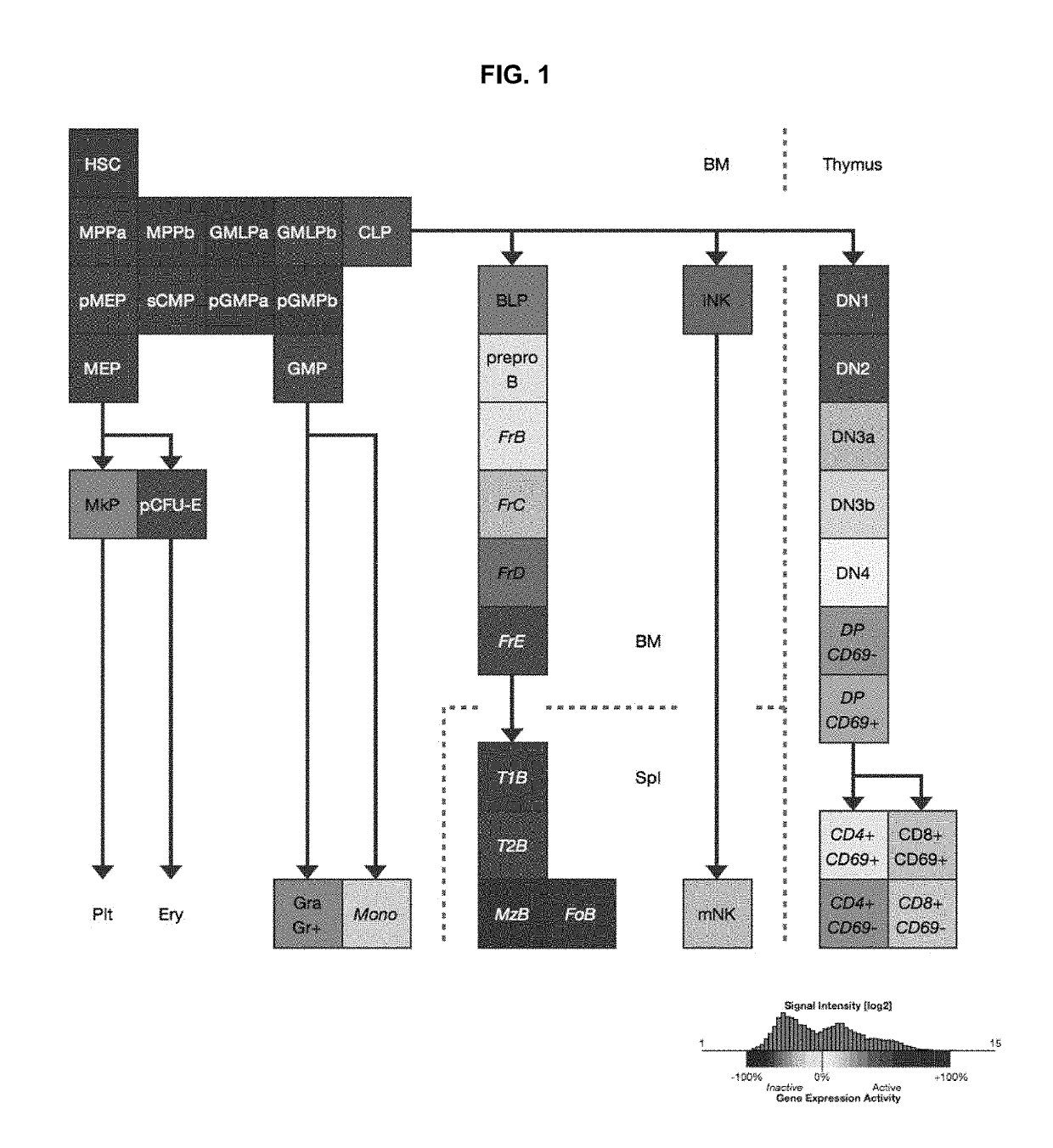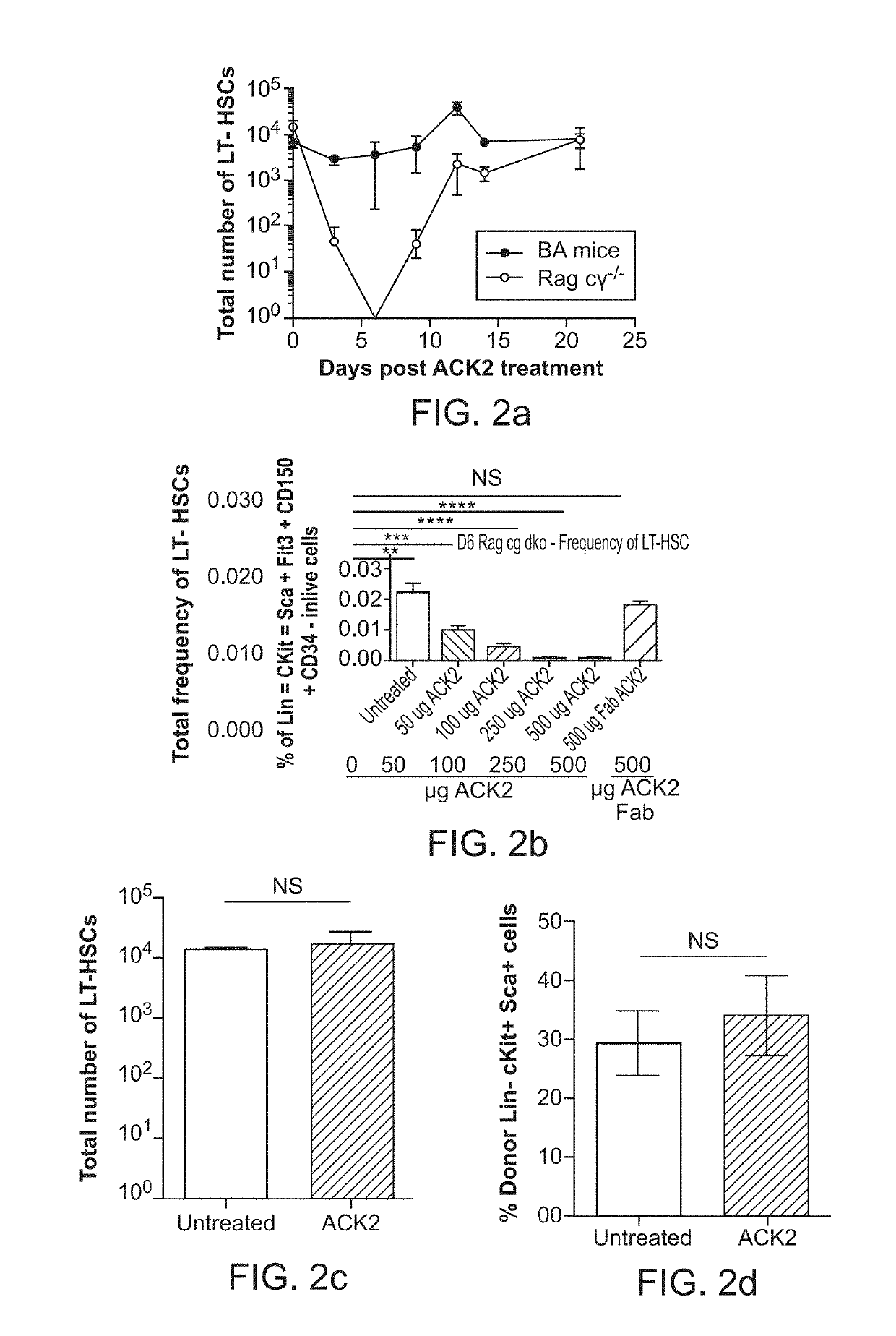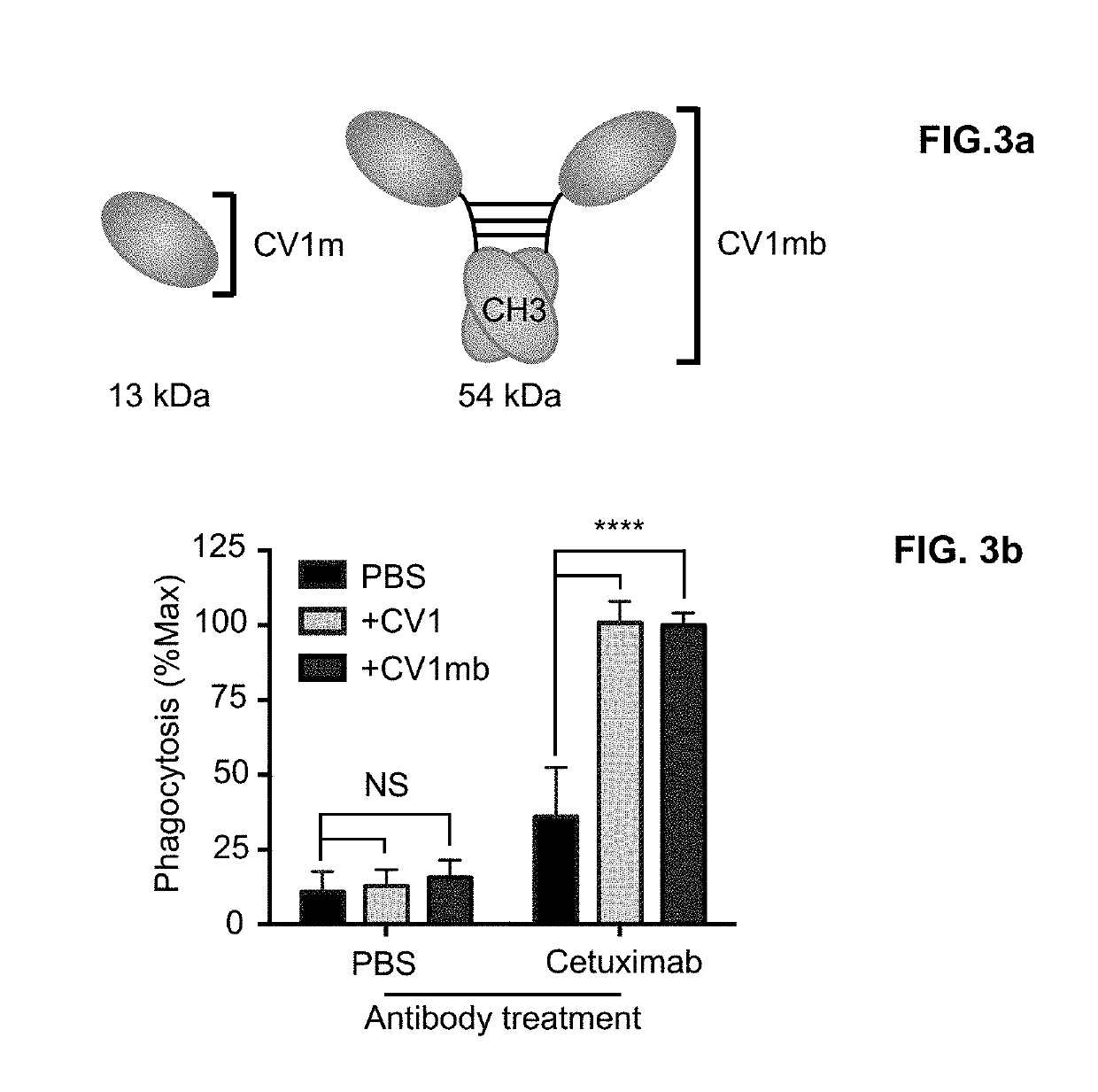Engraftment of stem cells with a combination of an agent that targets stem cells and modulation of immunoregulatory signaling
a stem cell and immunoregulatory signaling technology, applied in the field of stem cell engraftment with a combination of an agent that targets stem cells and immunoregulatory signaling modulation, can solve the problems of limiting the clinical utility potential of bmt and terms of patient toxicity, and achieves the effects of increasing the efficacy of anti-cd47, increasing donor granulocyte chimerism, and increasing donor b-cell chimerism
- Summary
- Abstract
- Description
- Claims
- Application Information
AI Technical Summary
Benefits of technology
Problems solved by technology
Method used
Image
Examples
example 1
[0114]HSC Transplantation in an Immunocompetent Host without Radiation or Chemotherapy
[0115]Hematopoietic stem cell (HSC) transplantation can treat diverse diseases of the blood system, including hematologic malignancies, anemias, and autoimmune disorders. However, patients must undergo toxic conditioning regimens such as chemotherapy and / or radiation to eliminate host HSCs and enable donor HSC engraftment. We have previously shown that monoclonal anti c-Kit antibody depletes HSCs from bone marrow niches and facilitates donor HSC engraftment in immune-deficient mice. Here we demonstrate that anti-c-Kit antibody depletes HSCs in an Fc dependent manner, implying the involvement of effector cells, and that the blockade of the ‘don't eat me’ molecule CD47 synergizes with anti-c-Kit antibody as a conditioning agent in immunocompetent mice. The combined treatment leads to elimination of >99% of host HSCs and robust multilineage blood reconstitution following HSC transplantation in immunoc...
example 2
Combination of CD47 Blockade and CD137 Agonism in Conditioning
[0158]Anti-c-Kit antibody ACK2 combined with CD47 blocking reagents enables granulocyte chimerism in immunocompetent recipients. Shown in FIG. 8, the frequency of donor derived Mac-1+Gr-1+ granulocytes and CD19+ B cells in the peripheral blood 8 weeks after transplant in recipients treated with ACK2 and the indicated CD47-targeting reagents as compared to untreated mice.
[0159]F1 mice (CD45.1×CD45.2) were treated with 500 μg of a monoclonal anti-CD117 antibody (ACK2) administered retro-orbitally in conjunction with 500 μg of a monoclonal anti-cd47 antibody (MIAP410) on Day 0. Mice were subsequently treated with 500 μg anti-CD47 (MIAP410) on Days 1, 2, 3 and 4 post initial anti-CD117 (ACK2) injection. On day 1 mice were given 500 μg of a monoclonal anti-CD137 antibody (LOB12.3), and on day 2 mice were given 100 ug of LOB12.3. On day 6, 7, and 8 mice received 1×106 lineage depleted CD45.2 bone marrow cells that are enriched ...
example 3
Successful Engraftment of Hematopoietic Stem Cells into Immunocompetent Recipients Using Only Anti-CD117 Antibodies and CD47 Blockade as Conditioning
[0163]Bone marrow transplantation (BMT) is an efficacious therapy for many otherwise incurable hematologic malignancies and disorders that affect production of hematopoietic cells, including life-threatening anemias, and immunodeficiency syndromes. In a successful transplantation, clearance of bone-marrow niches must be achieved for donor hematopoietic stem cell (HSC) to engraft. Current methods to clear niche space rely on radiation and / or chemotherapy, which can impart toxic adverse effects that greatly limit the potential clinical utility of BMT. Thus, there is a major clinical need for safer conditioning regimens. To this end, a monoclonal antibody against CD117 (ACK2) has been shown to transiently deplete HSCs in immunocompromised mice and enable donor cell engraftment. However, this regimen has proved ineffective in immunocompeten...
PUM
| Property | Measurement | Unit |
|---|---|---|
| time | aaaaa | aaaaa |
| soluble | aaaaa | aaaaa |
| affinity | aaaaa | aaaaa |
Abstract
Description
Claims
Application Information
 Login to View More
Login to View More - R&D
- Intellectual Property
- Life Sciences
- Materials
- Tech Scout
- Unparalleled Data Quality
- Higher Quality Content
- 60% Fewer Hallucinations
Browse by: Latest US Patents, China's latest patents, Technical Efficacy Thesaurus, Application Domain, Technology Topic, Popular Technical Reports.
© 2025 PatSnap. All rights reserved.Legal|Privacy policy|Modern Slavery Act Transparency Statement|Sitemap|About US| Contact US: help@patsnap.com



